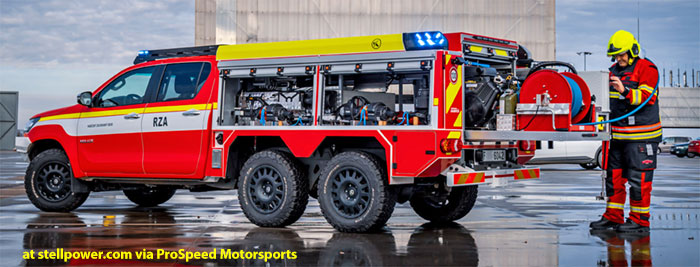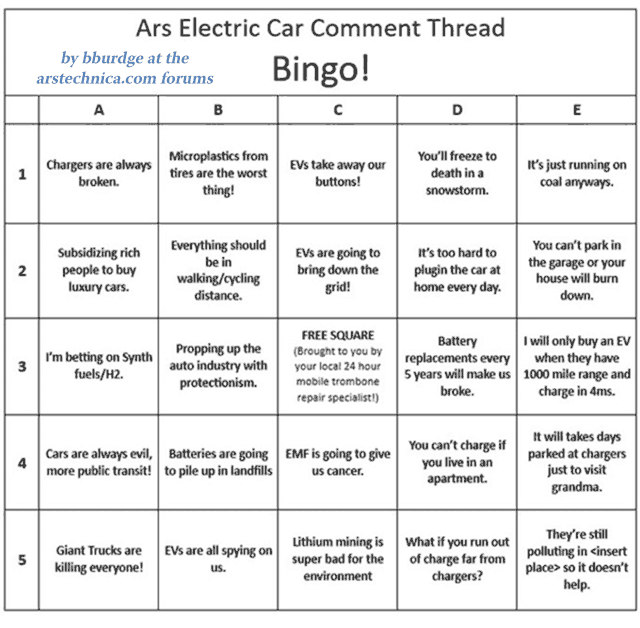Excuses for avoiding electric cars are plentiful enough to have bingo cards (see end of story), but one of them—the risk of long, difficult fires—may have a solution now. While electric cars are not as likely to catch fire as gasoline cars, they are far harder to put out. (Cheap electric bikes seem to catch fire at a fairly high rate, setting apartments and houses afire, but those are made to much, much lower standards than cars.)

The current wisdom is that the cars simply have to be deluged with water, sometimes for hours. That can cause special problems when cars are close together or in a parking deck. Racing parts company ProSpeed Motorsports had two ideas for ending that problem, using a minimal amount of water and time to put out the fires.
Their new Hiload fire truck can easily fit into parking decks, carrying 1,200 liters (1.2 kiloliters, if you must) of water along with the crew and equipment. The powertrain and such come from the compact Toyota Hilux pickup, though the chassis is custom made.
The truck’s “Cobra Cold-Cut” system uses an abrasive suspended in water to pierce cars’ steel; then water can be injected at over 4,000 psi into the car battery case. That water cools the fire and prevents or ends thermal runaway. As a result, it can quash electric car fires with just 65 gallons of water—putting out up to five fires without a tank refill.
The truck has a custom chassis with six wheels and a low center of gravity for better performance on the road, getting to fires; it is made by which is primarily a racing components company.
Original Source: Fire Apparatus Magazine.
Electric car bingo. Card originally posted at the ArsTechnica forums.

Discover more from Stellpower - that Mopar news site
Subscribe to get the latest posts sent to your email.
